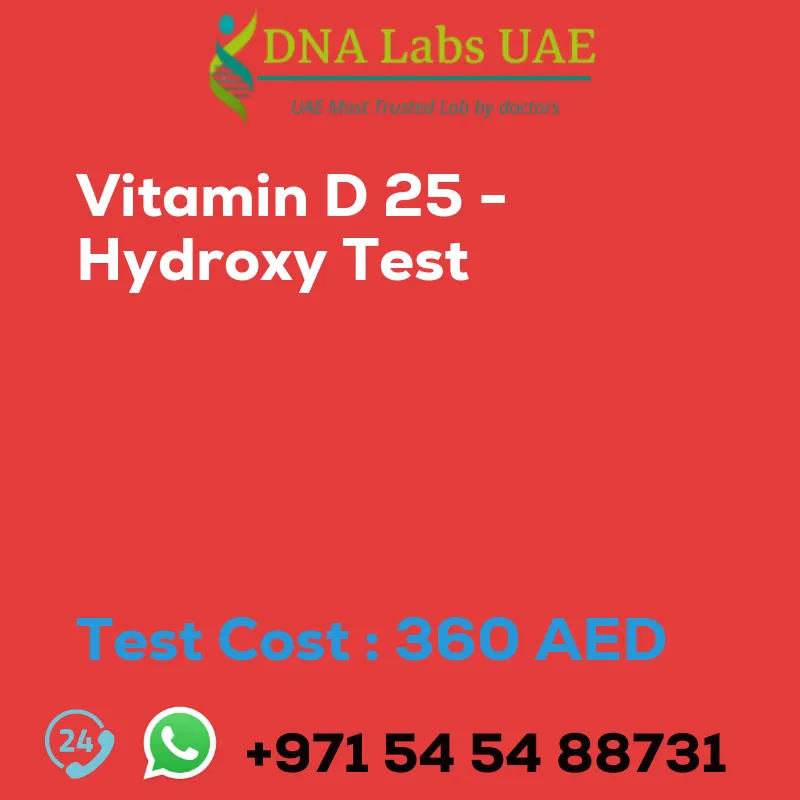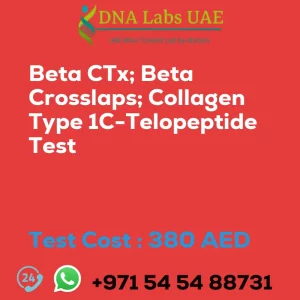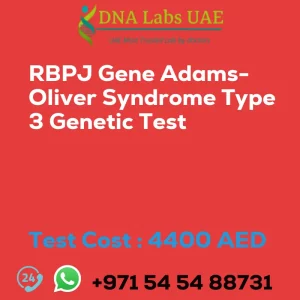Understanding the Vitamin D 25-Hydroxy Test
The Vitamin D 25-Hydroxy Test is a blood test that measures the level of vitamin D in your blood. Vitamin D is crucial for maintaining healthy bones and teeth, supporting immune function, and regulating calcium and phosphate in the body. This test is the most accurate way to measure how much vitamin D is present in your body. For people in the UAE, where sunlight is abundant yet vitamin D deficiency is surprisingly common, this test is essential for ensuring optimal health.
Importance of Vitamin D
Vitamin D, often called the “sunshine vitamin,” is synthesized in the skin upon exposure to sunlight. It can also be obtained from certain foods and supplements. The Vitamin D 25-Hydroxy Test specifically measures 25-hydroxyvitamin D (25(OH)D), the main form of vitamin D circulating in the blood, which is the best indicator of vitamin D status.
Vitamin D Blood Test is Essential
- Accurate Assessment: This test provides an accurate measure of vitamin D levels in the blood, helping to diagnose vitamin D deficiency or toxicity.
- Preventive Health: Knowing your vitamin D status can help prevent bone disorders such as rickets in children and osteomalacia or osteoporosis in adults.
- Chronic Disease Prevention: Adequate vitamin D levels are linked to a lower risk of chronic diseases such as cardiovascular disease, diabetes, and certain cancers.
- Tailored Supplementation: The test results can guide appropriate vitamin D supplementation to achieve optimal levels, avoiding over- or under-supplementation.
Vitamin D Deficiency Symptoms
Vitamin D deficiency can lead to various health issues. Symptoms may not always be obvious, but they can significantly impact overall well-being. Common symptoms include:
- Bone Pain and Muscle Weakness: Vitamin D is essential for calcium absorption. Deficiency can lead to bone pain and muscle weakness, which are often subtle but can affect daily activities.
- Frequent Illnesses or Infections: Vitamin D plays a critical role in immune function. Low levels can increase susceptibility to infections and illnesses.
- Fatigue and Tiredness: Persistent fatigue can be a sign of vitamin D deficiency. Improving vitamin D levels can enhance energy and reduce fatigue.
- Depression: Low levels of vitamin D have been linked to an increased risk of depression. Vitamin D supplementation may help improve mood.
- Impaired Wound Healing: Vitamin D is involved in the process of wound healing. Deficiency can result in slower recovery from injuries and surgeries.
- Hair Loss: Severe hair loss has been linked to low vitamin D levels, especially in cases of female pattern hair loss and alopecia areata.
Vitamin D 25-Hydroxy Level
The Vitamin D 25-Hydroxy Test measures the level of a specific molecule in your blood called 25-hydroxyvitamin D (25(OH)D). This molecule is the primary way to assess your body’s vitamin D stores. Here’s how to interpret the results:
- Vitamin D Deficiency (Less than 20 ng/mL): This indicates low vitamin D levels, potentially impacting bone health, immune function, and overall well-being. Supplementation and increased sun exposure (with proper protection) may be recommended.
- Vitamin D Insufficiency (20-30 ng/mL): While not a severe deficiency, these levels may not be optimal for peak health. Doctors might suggest moderate sun exposure or low-dose vitamin D supplementation.
- Vitamin D Sufficiency (30-100 ng/mL): This range represents adequate vitamin D stores for most individuals.
- Vitamin D Toxicity (Greater than 100 ng/mL): Extremely rare, excessive vitamin D levels can lead to health problems. This test result usually prompts further investigation by a doctor.
Vitamin D 25-OH Normal Range
The “normal” range for vitamin D can vary slightly depending on individual factors like age and health conditions. It’s crucial to discuss your test results with your doctor to determine the optimal level for your specific needs. Some factors that may influence your vitamin D requirements include:
- Age: Vitamin D absorption can decrease with age, potentially requiring higher intake in older adults.
- Medical Conditions: Certain medical conditions like kidney disease or obesity can affect vitamin D metabolism.
- Skin Pigmentation: Individuals with darker skin tones may require more sun exposure to synthesize sufficient vitamin D.
Vitamin D Toxicity Symptoms
While vitamin D deficiency is common, excessive intake can lead to toxicity, although it is rare. Symptoms of vitamin D toxicity include:
- Nausea and Vomiting: High levels of vitamin D can cause gastrointestinal symptoms such as nausea, vomiting, and loss of appetite.
- Hypercalcemia: Excessive vitamin D can lead to hypercalcemia, characterized by high levels of calcium in the blood, resulting in confusion, disorientation, and heart rhythm problems.
- Kidney Damage: Prolonged high levels of vitamin D can cause damage to the kidneys, leading to conditions like nephrocalcinosis.
Getting the Vitamin D 25-Hydroxy Test in the UAE
If you suspect you may have a vitamin D deficiency or are experiencing symptoms related to low vitamin D levels, it is advisable to consult with a healthcare provider about getting the Vitamin D 25-Hydroxy Test. Here are some steps to follow:
- Consultation: Schedule an appointment with your healthcare provider to discuss your symptoms and health concerns.
- Blood Sample Collection: A blood sample will be drawn and sent to a laboratory for analysis.
Interpreting Results: Your healthcare provider will interpret the results and discuss whether you have sufficient, insufficient, or deficient levels of vitamin D.
Test Details
The Vitamin D 25 – Hydroxy test, also known as the 25-hydroxycholecalciferol test or simply the Vitamin D test, is a blood test that measures the level of 25-hydroxyvitamin D in the body. Vitamin D is an essential nutrient that helps regulate calcium and phosphorus levels in the body, supporting healthy bones, teeth, and immune function. It also plays a role in cell growth, neuromuscular function, and reducing inflammation. There are two forms of Vitamin D that are measured in this test: Vitamin D2 (ergocalciferol) and Vitamin D3 (cholecalciferol). Vitamin D2 is obtained from plant-based sources, while Vitamin D3 is produced in the skin when exposed to sunlight and is also found in animal-based sources.
The test is typically ordered by a healthcare provider if there is a suspicion of Vitamin D deficiency or to monitor the effectiveness of Vitamin D supplementation. Symptoms of Vitamin D deficiency may include bone pain, muscle weakness, fatigue, and increased susceptibility to infections. The results of the test are reported as a numerical value in nanograms per milliliter (ng/mL) or nanomoles per liter (nmol/L). The optimal range for Vitamin D levels may vary depending on the laboratory, but generally, levels between 30-100 ng/mL (75-250 nmol/L) are considered sufficient.
Conclusion
The Vitamin D 25-Hydroxy Test is an essential diagnostic tool for maintaining optimal health and preventing a range of health issues associated with vitamin D deficiency. For residents in the UAE, where lifestyle and environmental factors can impact vitamin D levels, regular testing can ensure that you maintain adequate vitamin D status. By understanding the importance of this test and recognizing the symptoms of deficiency, you can take proactive steps towards better health and well-being. If you have concerns about your vitamin D levels, consult with a healthcare provider and consider getting the Vitamin D 25-Hydroxy Test.







